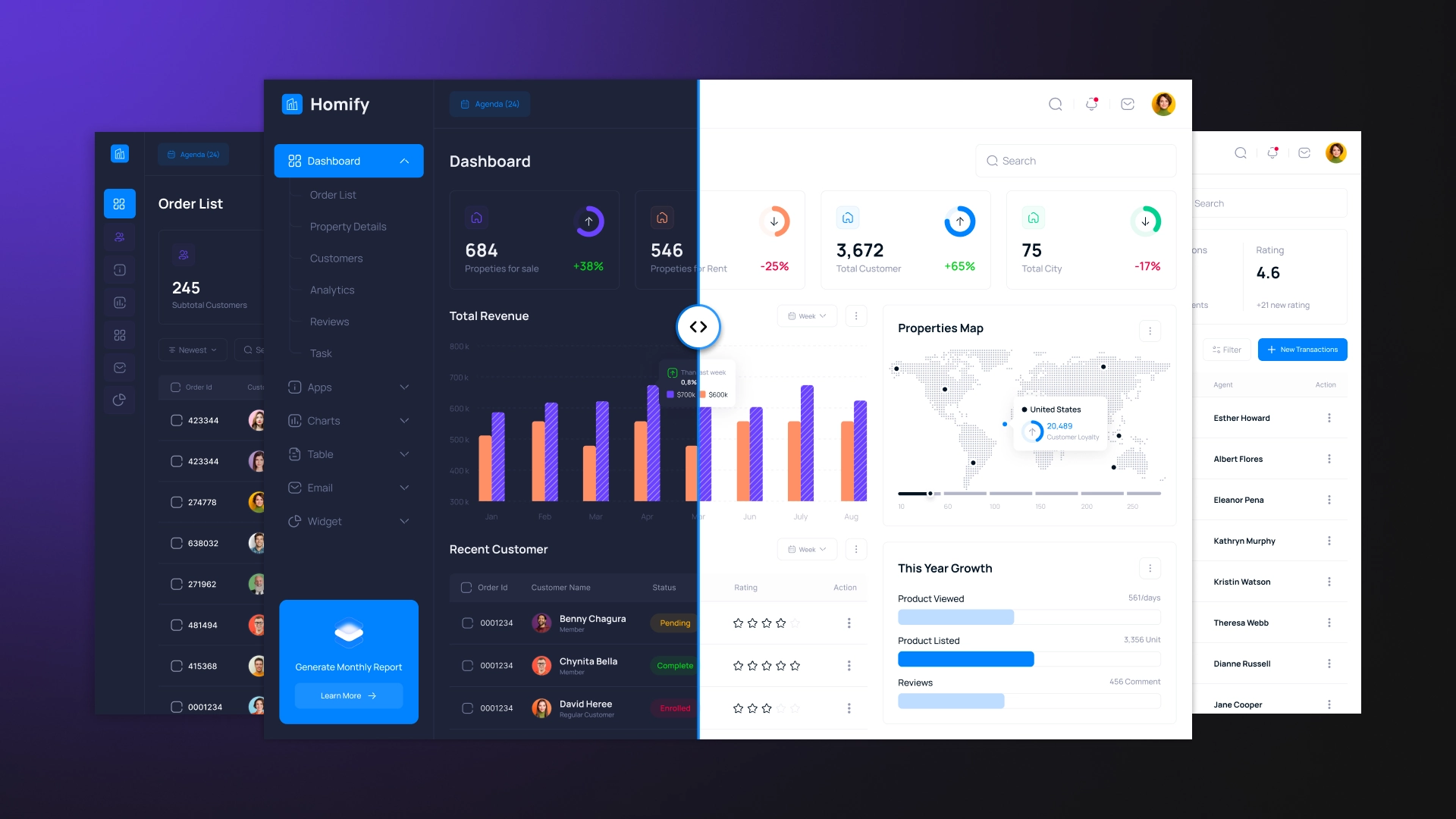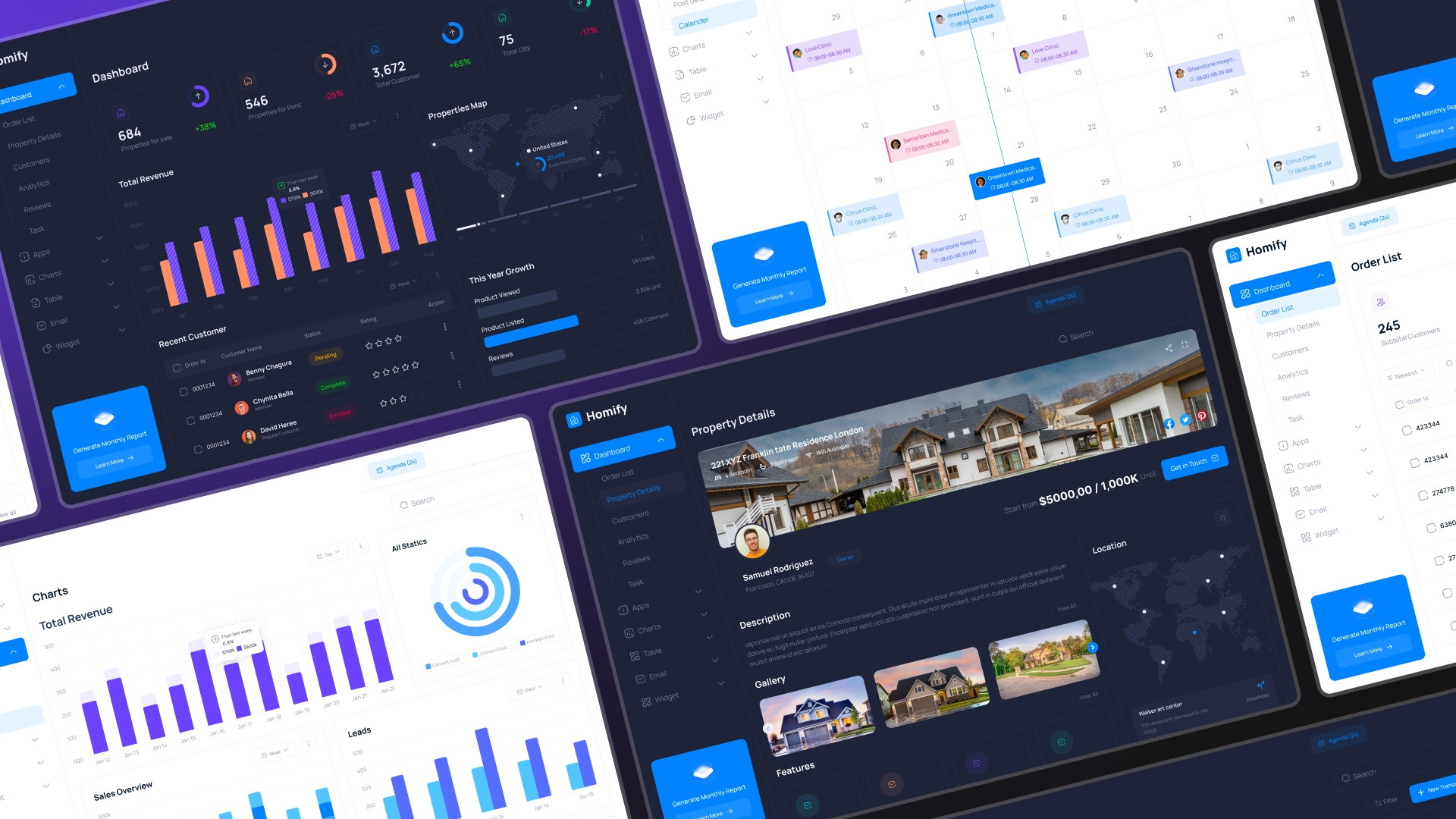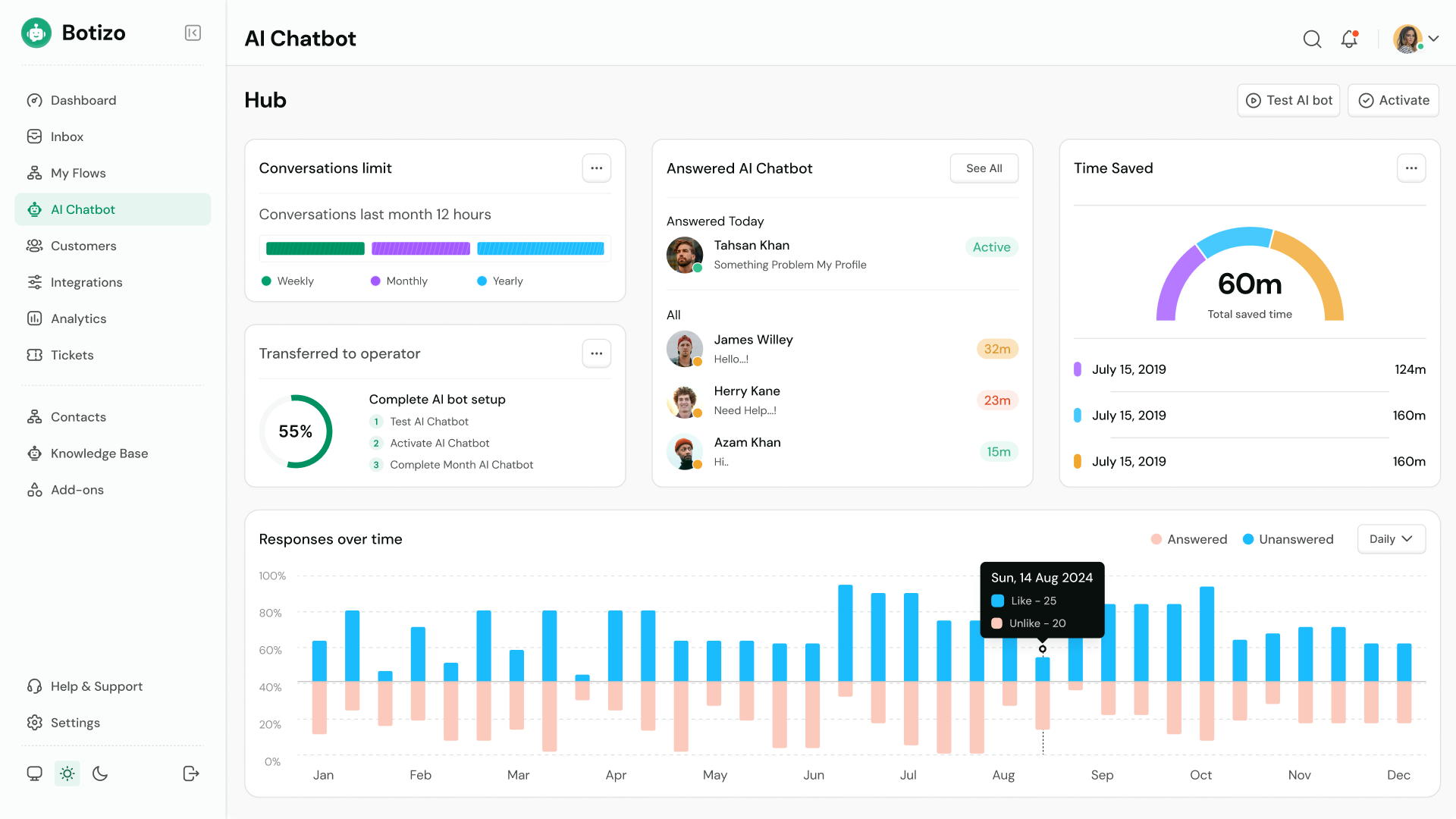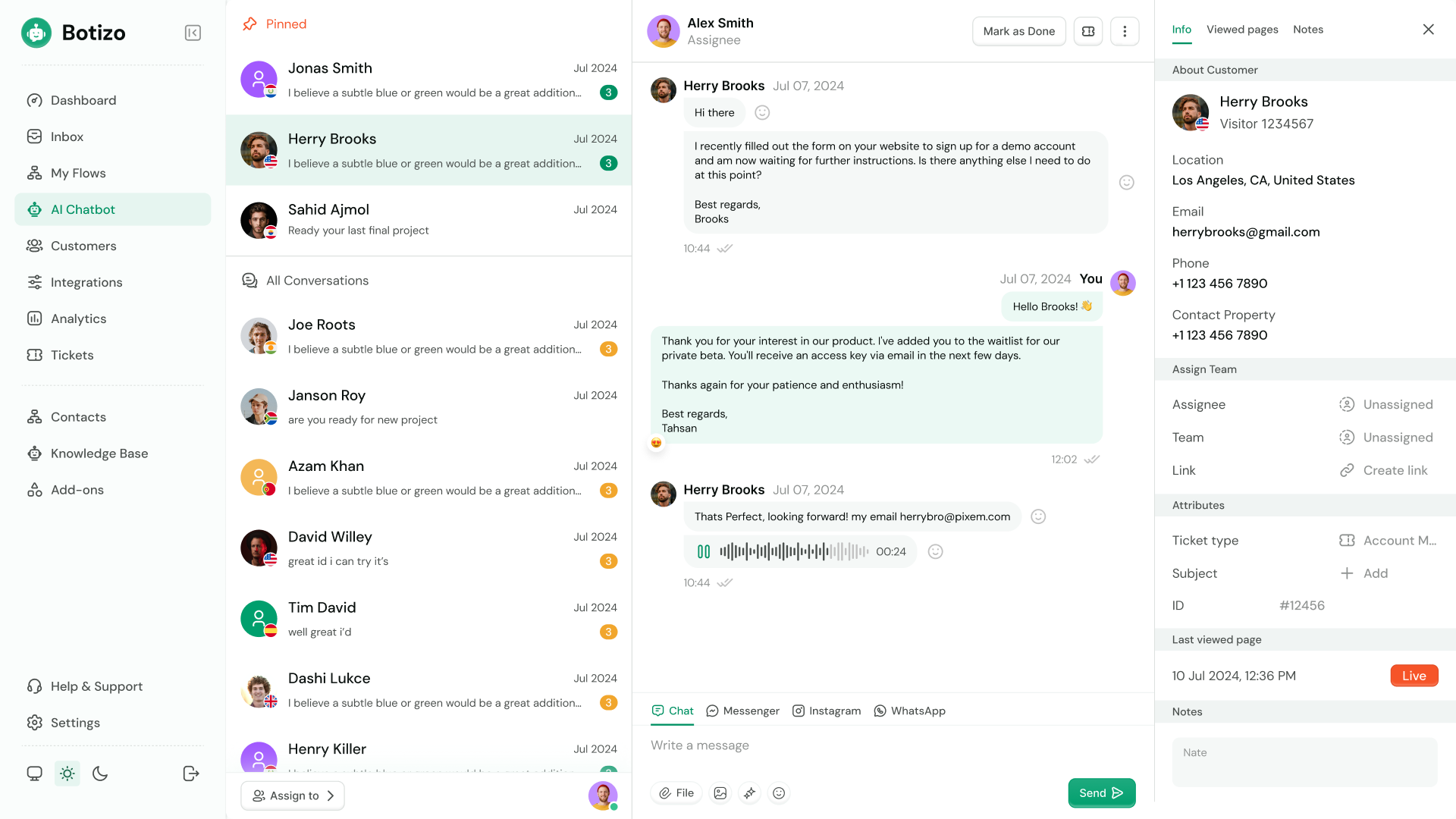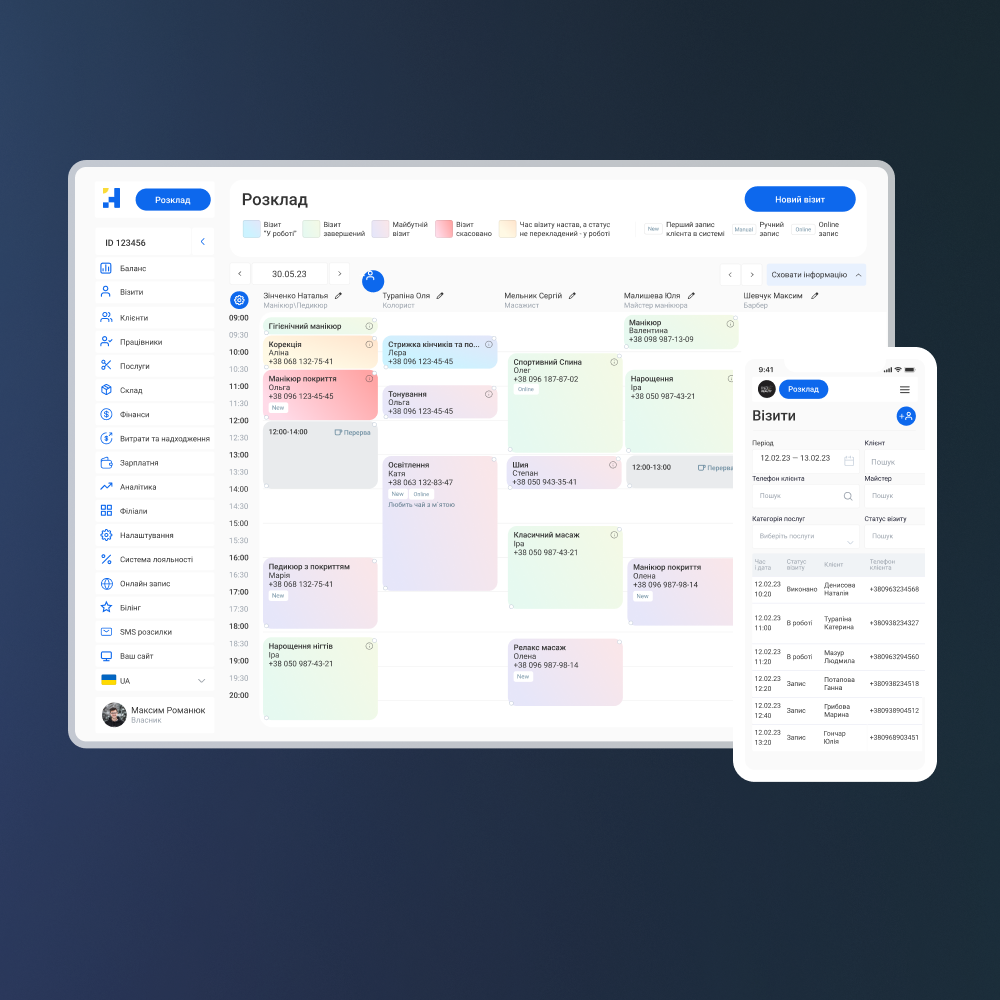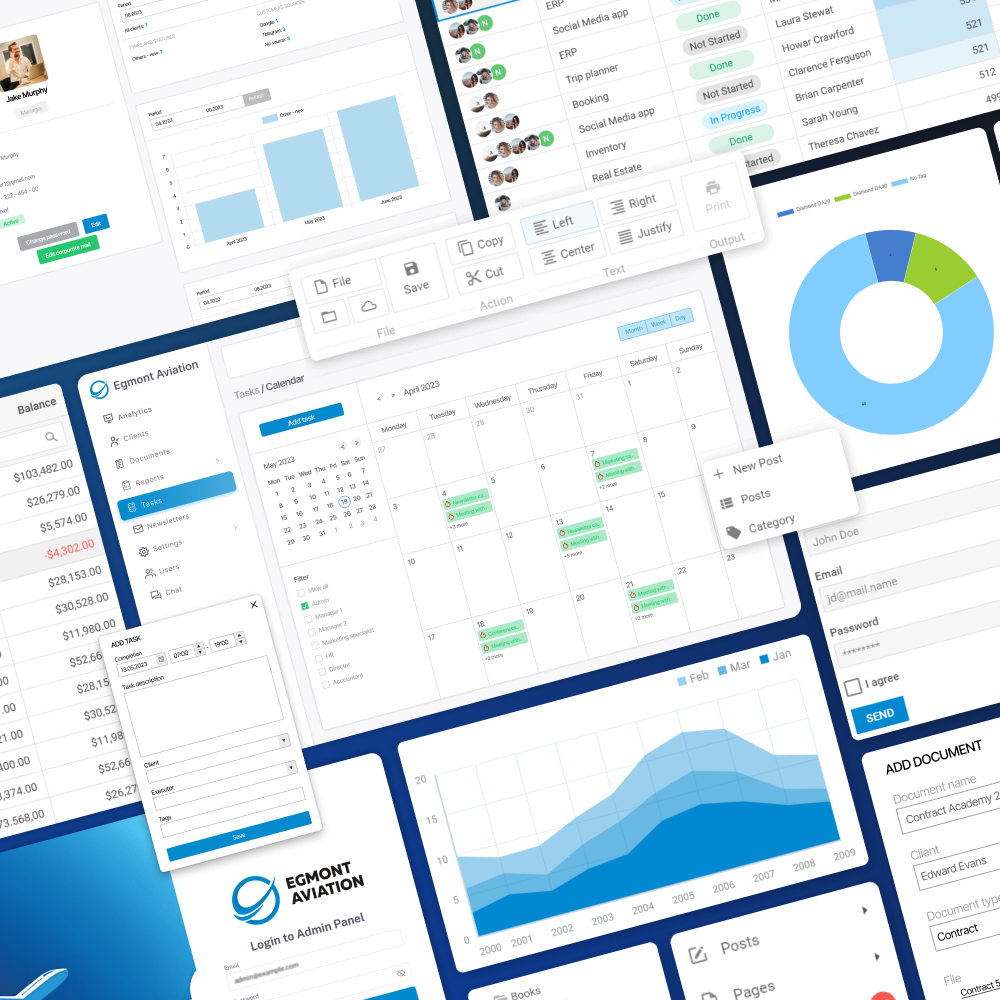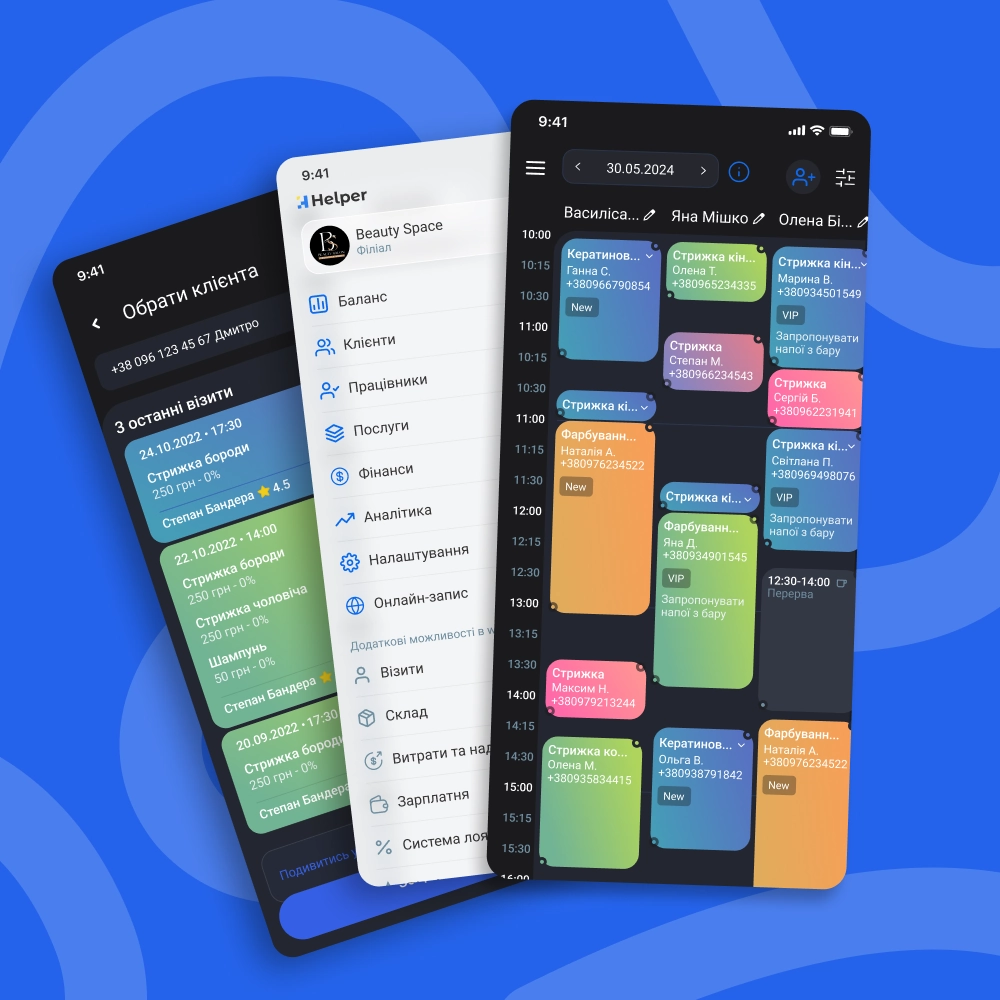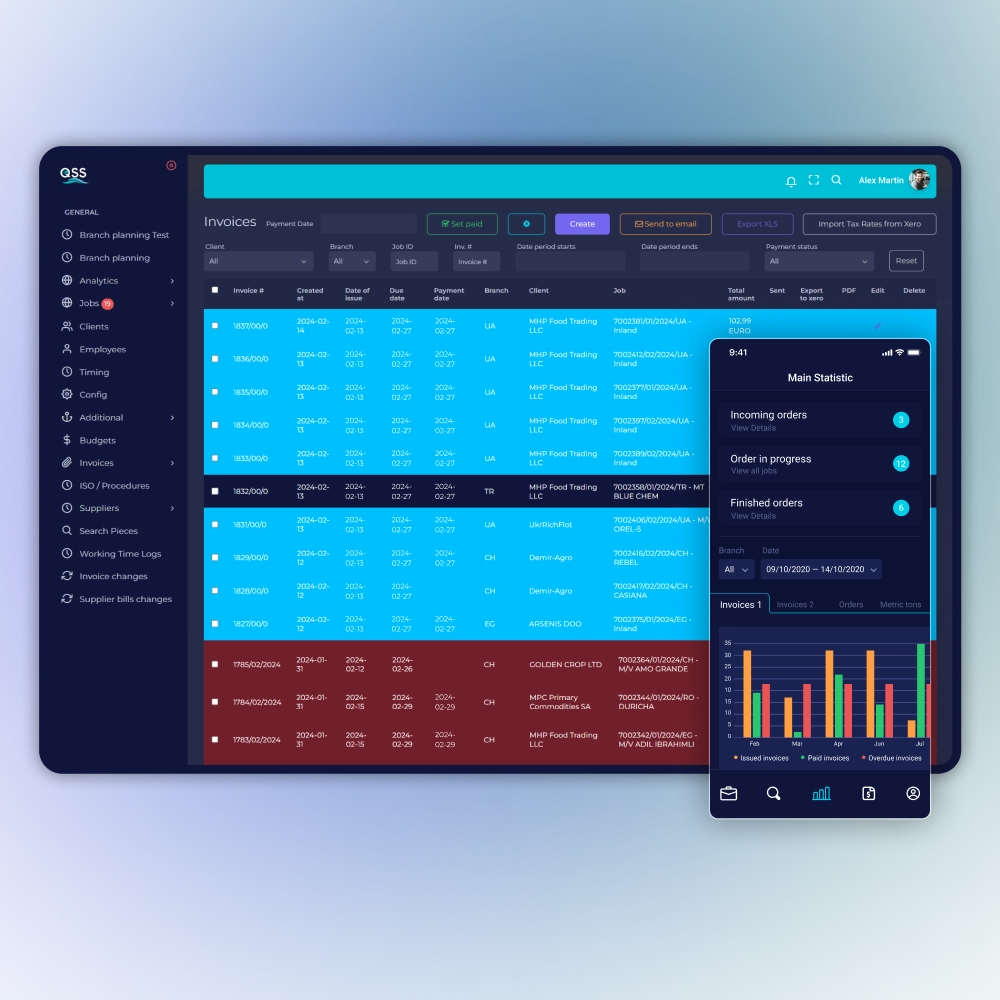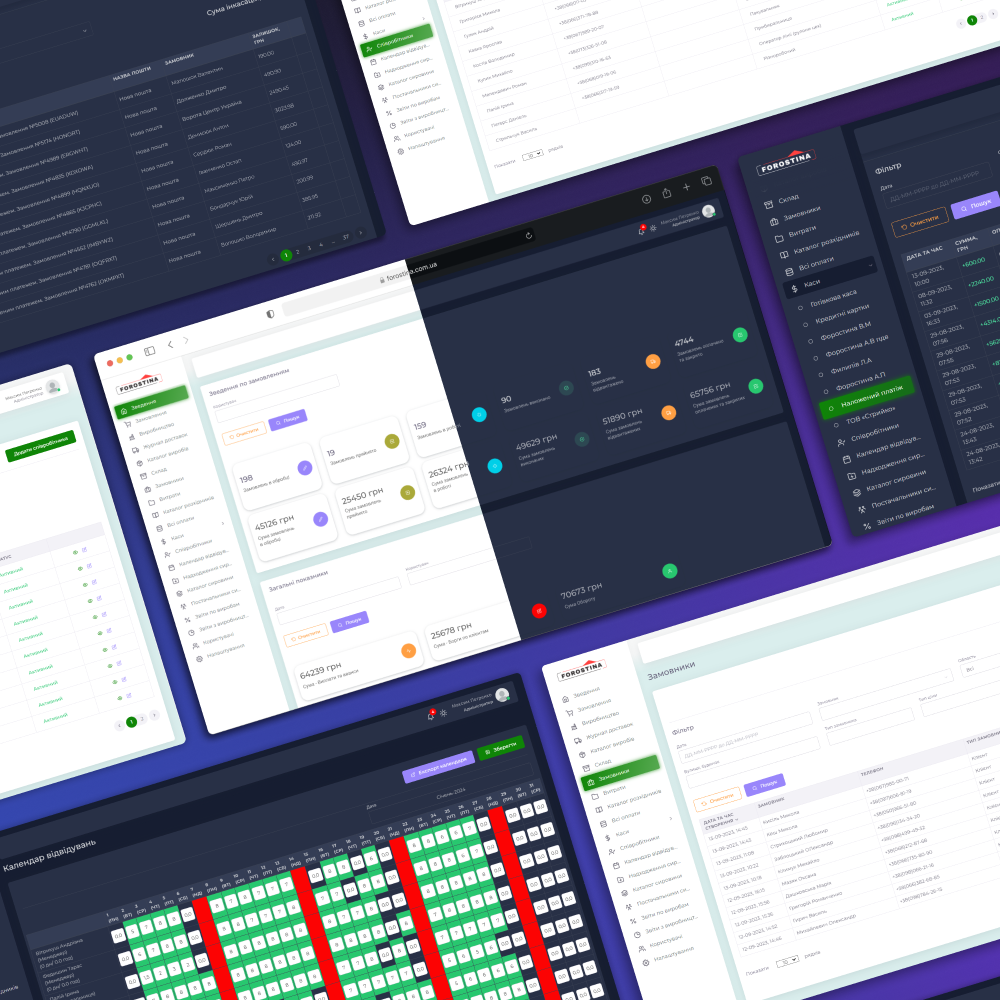







CRM/ERP
Expertises
CRM and ERP with chat-oriented logic and AI bots

Mobile CRM for field employees

CRM/ERP with AI automation
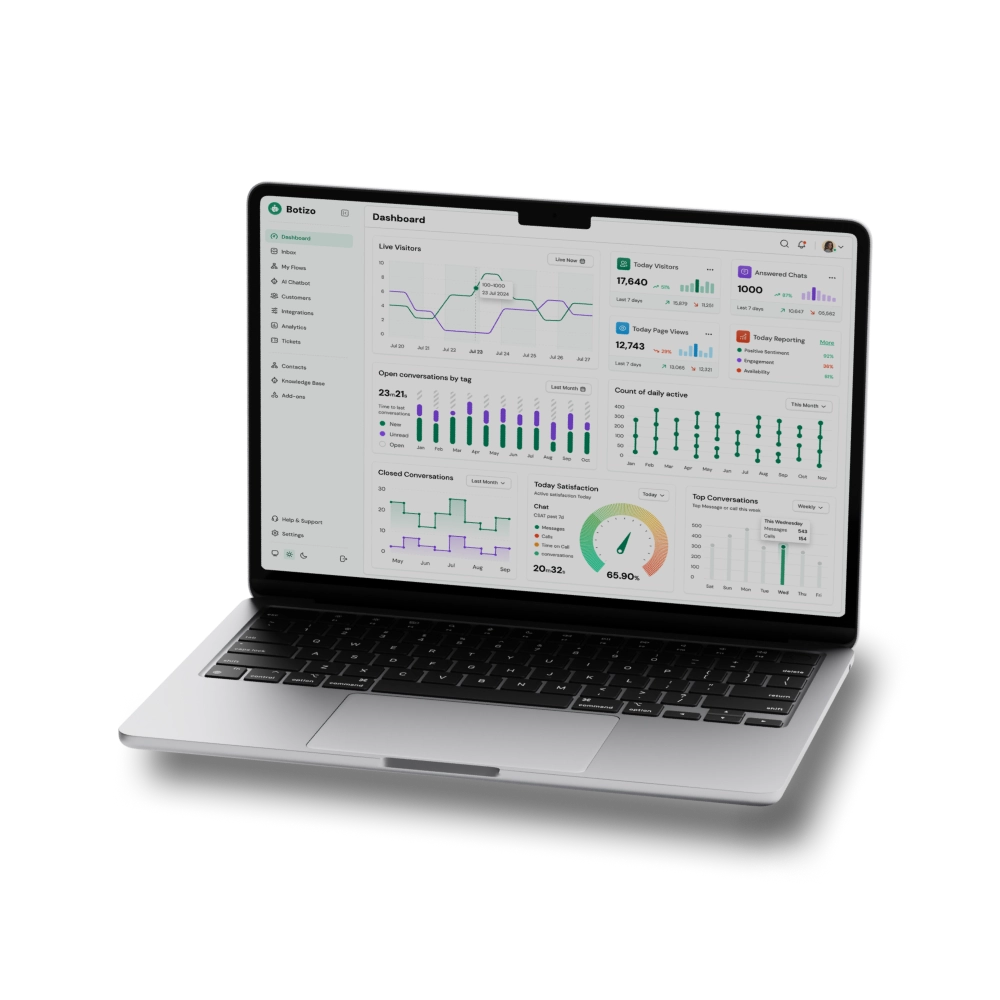


CRM with 2D/3D configurator module
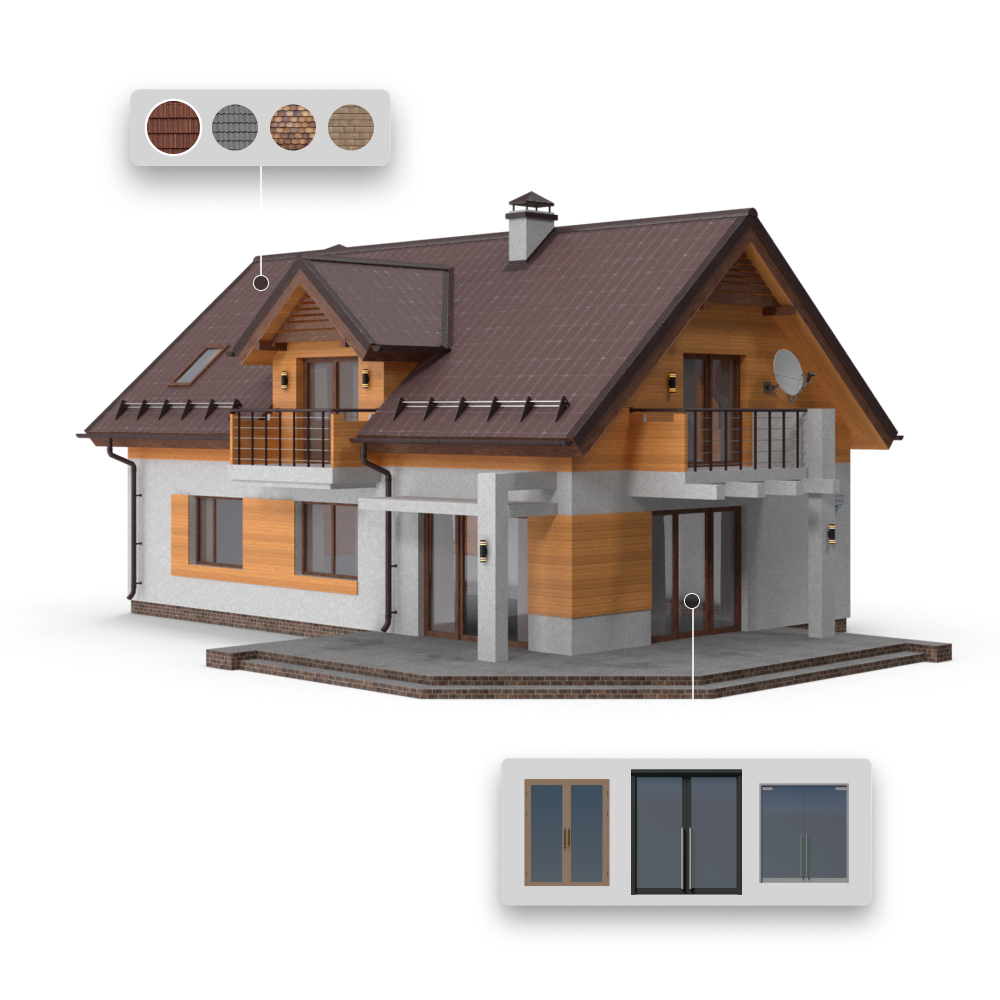


Development of custom CRM and ERP systems
Today, basic automation is no longer sufficient to maintain competitiveness. Modern companies require flexible systems, deep customization, and innovative solutions. Therefore, custom CRM and ERP development is becoming increasingly popular – these systems help effectively manage processes, automate routine tasks, analyze data, and make important decisions.
At AVADA MEDIA, you can order custom ERP and CRM systems for your business, featuring unique functionality and design, with a focus on innovation and efficiency. Unlike off-the-shelf solutions, our products are designed with your business model in mind and incorporate cutting-edge technologies. These programs don't just automate tasks – they become an effective part of a digital ecosystem, synchronizing every action of employees, clients, and partners.
What are CRM and ERP systems?
CRM and ERP systems are digital platforms for managing and automating business processes:
- Developing CRM systems for businesses is essential for effective interaction with clients: maintaining a contact database, managing the sales funnel, automating marketing, and providing support and service.
- ERP system implementation covers the company's internal processes: finance, warehouse, logistics, production, document management, and analytics.
With these tools, businesses achieve measurable benefits and operate in a more structured, efficient, and transparent manner. ERP and CRM solutions for businesses help optimize key processes, consolidate data, and align teamwork:
- automate repetitive, similar operations : order processing, customer database management, product accounting, and report generation;
- centrally store all data – about clients, products, finances and processes, providing quick access to information;
- synchronize the work of sales, marketing, logistics, accounting, and production departments—teams work in concert, without duplicating tasks, delays, or manual data transfer;
- improve the efficiency of sales and customer service by allowing you to track user actions at all stages of interaction, quickly respond to requests, and offer personalized solutions;
- allow you to manage resources in real time – stocks, finances, employees, finished products – and make decisions based on up-to-date data;
- conduct analysis and provide reports, dashboards and KPIs that are necessary for assessing business performance and planning;
- reduce the workload on staff and reduce operating costs;
- eliminate the human factor, reducing the number of errors, duplication of information and losses.
Thus, high-tech custom CRM and ERP systems enable companies to integrate data, processes, and teams into a single, manageable system, while also providing complete control over processes and information.
Advanced CRM/ERP capabilities
Our custom systems go beyond basic functionality. We develop solutions with advanced modules and technologies that make the system as flexible, user-friendly, and innovative as possible.
Business systems with a responsive PWA interface
Ordering a CRM or ERP with a PWA interface is available for both corporate use and client dashboards. This format allows you to work with the system directly from a browser on any device—from computers to smartphones—without installing it through the App Store or Google Play. The interface updates instantly, supports offline mode, and ensures fast operation even with unstable internet connections. This approach is especially convenient for companies with distributed teams and mobile employees.
Mobile CRM for field workers
These systems are optimized for smartphones and tablets and provide quick access to data at any time. GPS tracking, visit tracking, task push notifications, and offline access are supported. This is convenient for sales representatives, couriers, service engineers, and other employees working outside the office. Mobile CRM for field use can be ordered as a standalone solution or as a module within a corporate system.
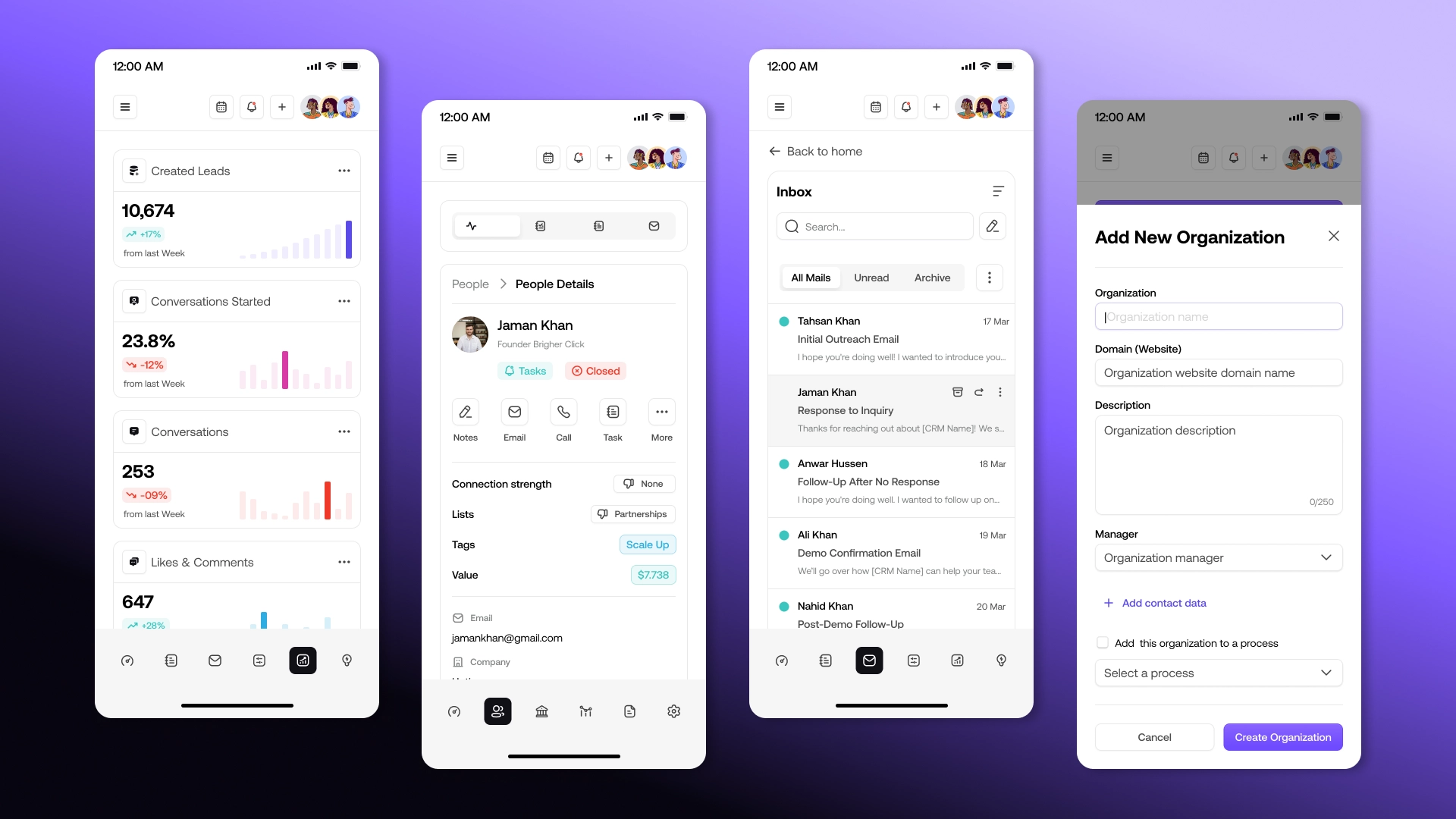
Chat-based business management systems
In a chat-oriented CRM, the interface and customer interactions are built in a dialog format, similar to traditional messaging apps. This speeds up communication between departments and clients, allowing for the integration of chatbots and AI modules to automatically process requests and applications. This format is particularly in demand in eCommerce, service centers, and logistics. Chat-oriented CRM is ideal for small and medium-sized businesses, where speed and ease of communication are key.
Our team has already developed such a solution – AvaCRM, which combines the convenience of a chat-first UI with full-fledged CRM functionality, becoming a universal tool for sales, support, and marketing. The system can be tested as is and, if necessary, customized for specific needs. You can order a chat CRM based on AvaCRM or in a completely custom format.
CRM with 2D/3D configurator
An online configurator is a module that allows you to visually customize a product or service to your individual requirements. Using the configurator, you can select options, colors, and parameters, and see the results immediately. The management system with the configurator automatically creates orders, calculates costs, and saves your selected settings. This solution is suitable for car dealerships, furniture companies, developers, and online stores. You can order a CRM with a configurator from us to increase conversion, maximize service personalization, and speed up business processes. Read more about 2D/3D configurators in various business sectors.
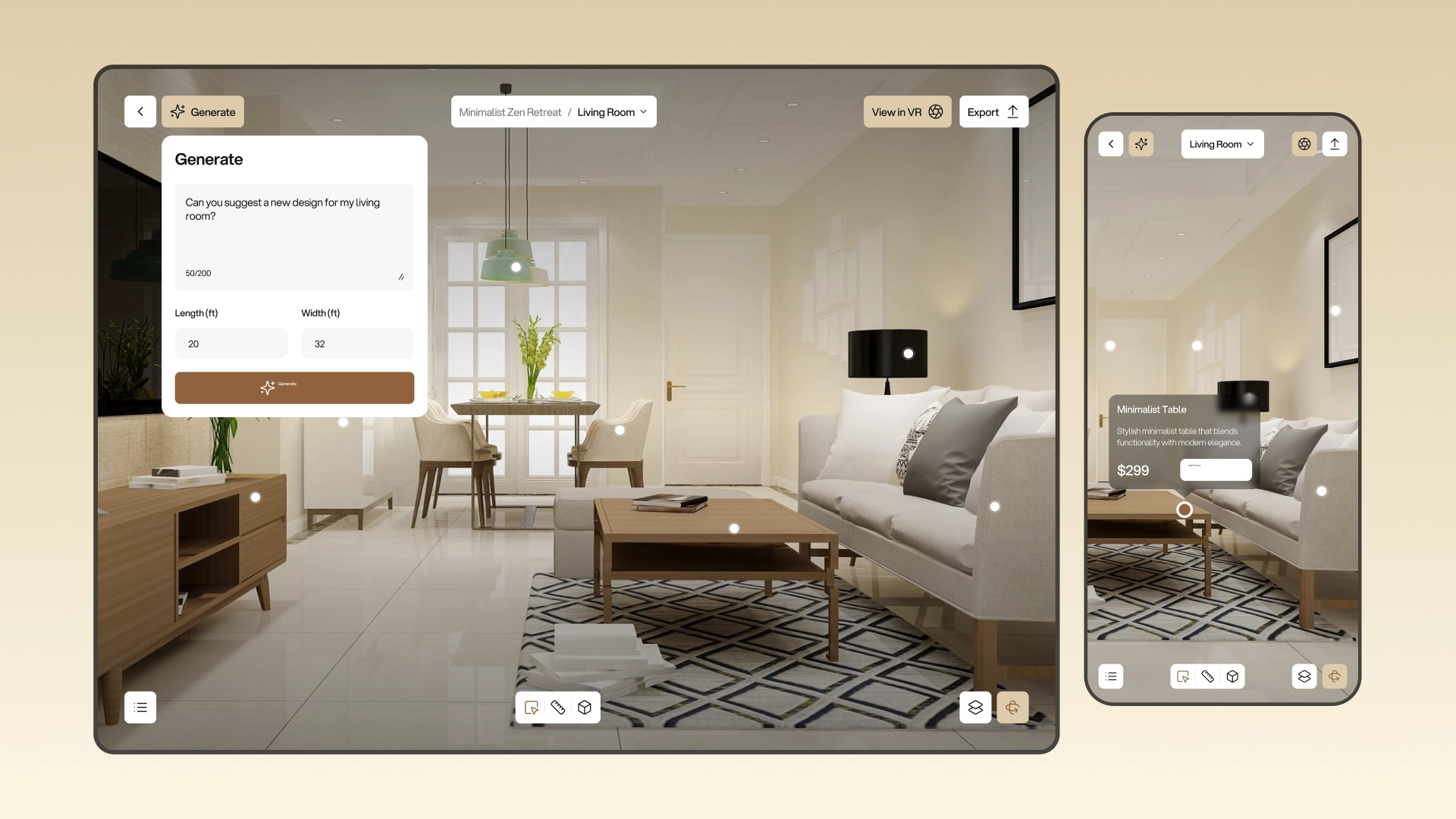
CRM/ERP with AI automation
Artificial intelligence integrated into business systems can analyze customer data using ML modules, forecast demand, automate order distribution, and help personalize communications. Such systems significantly accelerate decision-making and generate in-depth analytics for strategic management. Developing a CRM or ERP system with AI automation is essential for companies that prioritize predictive planning and minimize manual processes.
Business systems with AI assistants
AI bots in CRM systems handle initial customer interactions: processing incoming requests, providing consultations, collecting data, and assisting with order processing. AI agents integrate into chats, messengers, and IP telephony, providing 24/7 support. They reduce the workload on employees and increase response times. Ordering a CPM solution with AI bots is ideal for service companies, online stores, and projects where a quick response to clients is essential.
Stages of ERP and CRM system development
Consistent development of a CRM system from scratch allows for project control at every stage and ensures that the software solution meets all requirements.
- Analysis and task setting . During the first stage, our team thoroughly studies business processes, industry specifics, and user needs. Together with the client, we define the goals for developing and implementing CRM or ERP systems, and then determine the modules and workflows that will deliver the greatest value.
- Development of technical specifications. Based on the analysis, technical specifications are prepared, outlining the functional requirements, system architecture, business logic, integration options, and security requirements. This document serves as the project roadmap and guarantees transparency for the client.
- UX/UI design and prototyping. After finalizing the specifications, our specialists develop interaction scenarios, build prototypes, and create interface designs. The primary focus is on the user experience for employees and clients: even complex processes remain simple and fast to navigate. The PWA format ensures the system is responsive across desktops, tablets, and smartphones.
- Software implementation . At this stage of CRM or ERP system development, front-end and back-end developers work in parallel. The front-end developer is responsible for implementing the user interface: the administrative control panel, forms and dashboards, and functional modules. To achieve this, our specialists use modern technologies—React, Vue, Angular, and other frameworks—that ensure high speed and flexibility. The back-end developer creates the core of the system: business logic, database management, integration with external services, and APIs. For the server side, our specialists use Node.js, PHP (Laravel), Python (Django, FastAPI), and relational or NoSQL databases (PostgreSQL, MySQL, MongoDB). Thanks to this architecture, the ERP or CRM business automation software remains scalable, secure, and ready for high workloads.
- Integrations and additional solutions. During development or later, the system can be expanded with additional features and modules, including AI assistants and configurators. For example, CRM chatbots can process customer requests and forward them to the sales department, while configurators allow users to create orders directly on the website.
- Testing and implementation. Before launch, QA specialists conduct functional, load, and UX testing, fixing potential bugs, and optimizing the program. After implementing the ERP or CRM, we help employees master the new tool to ensure the transition is as smooth as possible.
- Support and Development. Upon request, we provide post-launch support, adding new modules, and adapting it to business changes as needed. This allows the CRM/ERP to remain relevant and effectively support company growth.
Why you should order ERP/CRM development from AVADA MEDIA
Our team has been creating custom business management systems for over 10 years for companies across various industries – from startups to large manufacturing enterprises, from retail to HoReCa. We know for sure: investing in a high-quality automation system pays off many times over through process efficiency, accurate analytics, and reduced manual work.
At AVADA MEDIA, you can order custom development of customer and production management systems . With us, you get a unique product that scales with your business and utilizes cutting-edge technologies—from AI modules and end-to-end analytics to PWA interfaces and IoT integrations. After implementation, we offer support and development of the system, guaranteeing data security and compliance with modern standards.
Order CRM development from scratch from AVADA MEDIA and receive an innovative, technologically advanced solution that will make business management easier, faster, and more efficient. Contact us any way you like for a consultation and to find the optimal solution for your project.
FAQ
-
What is the difference between CRM and ERP systems?
The first focuses on customer relationship management. Its primary responsibilities include sales, marketing, and support, from initial contact to post-sales service. An ERP system is a more comprehensive system that manages a company's key internal resources: finance, production, procurement, warehouse, and human resources. While CRM is responsible for the external aspects of a business, ERP is more focused on the internal aspects.
-
How long does it take to develop a turnkey CRM and ERP system?
Building a CRM from scratch is a customized process, the duration of which depends on the complexity and scope of functionality. On average, an MVP takes four months, while comprehensive business automation will require longer. For a more accurate estimate, we need to analyze your business processes.
-
How much does it cost to develop a custom CRM system, and what influences the price?
The cost of developing an ERP and CRM system is determined by several key factors: the scope and complexity of functionality, the number of integrations, the uniqueness of the business processes to be automated, and the level of expertise involved. Before starting work, we conduct a detailed analysis and estimate the budget.
-
Is it possible to start with basic functionality and then expand the system?
Yes, this is one of our key approaches. When starting a business, you can begin automation with a minimum viable product (MVP), which includes only the most essential functionality to solve your current problems. As your business grows and new needs arise, we can gradually add new modules and expand the system's capabilities.
-
Is it possible to use the system without a permanent internet connection?
Yes, this is possible for mobile and PWA apps. These technologies allow offline work, storing data locally on the device. When an internet connection is restored, the program automatically syncs all changes with the central database, ensuring a seamless workflow.
-
Which specialists are included in the dedicated team for turnkey CRM implementation?
For each project, we assemble a dedicated team of experts. Typically, developing a management system from scratch requires a project manager to coordinate all processes, a business analyst to help detail requirements, a UI/UX designer, backend and frontend developers, and a QA engineer to ensure quality control.
-
Is it possible to integrate AI bots or other intelligent modules into an existing system?
Yes, this is one of our specialties. We can develop and integrate various intelligent modules into your existing system, including AI bots for process and communication automation, machine learning-based analytics dashboards, sales forecasting modules, and recommendation systems.
-
What risks may arise when implementing a CRM system for your business?
Theoretically, risks include data loss, employee resistance, and integration errors. We eliminate these through careful migration planning, staff training, and comprehensive testing. The transition is carried out in stages, avoiding disruptions.
-
How to evaluate the effectiveness of programs after launch?
The effectiveness of CRM implementation for businesses is assessed using key performance indicators (KPIs), which we can identify during the project planning stage. Specific KPIs depend on the development goals—for example, reducing order processing time, increasing conversion, increasing employee productivity, reducing errors, or improving customer experience. We can also customize tools for tracking and analyzing these metrics when designing a CRM system for your business.




